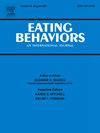利用违反刻板印象来转变对体重的因果理解和态度。
IF 2.4
3区 医学
Q2 PSYCHIATRY
引用次数: 0
摘要
目的:我们评估了一种减少体重成见的方法,即提供一个与体重偏见的基本信念系统不一致的范例。具体来说,就是体重高的人吃不健康、高热量的饮食,体重低的人吃健康、低热量的饮食。提供违反刻板印象假设的范例可能会导致信念、刻板印象的改变,并最终导致成见的改变:在一项基于网络的实验研究中,682 名美国参与者被随机安排阅读一个虚构的中年妇女的叙述性小故事,该妇女被描述为体重稳定、偏高或稳定、偏低,并长期食用高热量或低热量食物。两种违反刻板印象的情况分别是体重较高的女性保持低热量饮食(HWLC)和体重较低的女性保持高热量饮食(LWHC):对于 HWLC 范例,结果与刻板印象改变过程一致,包括遗传因果归因增加、生活方式归因减少,以及对范例和 "肥胖女性 "的总体态度更加积极。而对 "肥胖妇女 "范例的反应则更不均衡:研究结果有助于理解人们根据个人体型和饮食习惯对其做出的判断,并为减少体重污名化的干预措施提供了新的途径。本文章由计算机程序翻译,如有差异,请以英文原文为准。
Using stereotype violation to shift causal understanding and attitudes about weight
Objective
We evaluated an approach to weight stigma reduction involving the provision of an exemplar inconsistent with belief systems underlying weight bias. Specifically, that people with higher weight eat unhealthy, high-calorie diets, and people with lower weight eat healthy, low-calorie diets. Providing exemplars that violate the stereotype's assumptions may lead to a change in beliefs, stereotypes, and ultimately, stigma.
Methods
In an experimental, web-based study, 682 US-based participants were randomized to read narrative vignettes about a fictional middle-aged woman portrayed as either having stable, high body weight, or stable, low body weight, and as eating a long-term diet that was either high- or low- in calorie-dense foods. Two stereotype violation conditions involved a woman with higher weight who maintains a low-calorie diet (HWLC) and a woman with lower weight who maintains a high-calorie diet (LWHC).
Results
For the HWLC exemplar, results were consistent with stereotype change processes including heightened genetic causal attributions, reduced lifestyle attributions, and more positive attitudes toward the exemplar and “women with obesity” in general. Response to the LWHC exemplar was more uneven.
Conclusions
Findings have implications in the understanding of judgments that people make about individuals based on their body size and dietary habits and suggests a new route for interventions that address weight stigma reduction.
求助全文
通过发布文献求助,成功后即可免费获取论文全文。
去求助
来源期刊

Eating behaviors
Multiple-
CiteScore
4.20
自引率
3.60%
发文量
65
审稿时长
60 days
期刊介绍:
Eating Behaviors is an international peer-reviewed scientific journal publishing human research on the etiology, prevention, and treatment of obesity, binge eating, and eating disorders in adults and children. Studies related to the promotion of healthy eating patterns to treat or prevent medical conditions (e.g., hypertension, diabetes mellitus, cancer) are also acceptable. Two types of manuscripts are encouraged: (1) Descriptive studies establishing functional relationships between eating behaviors and social, cognitive, environmental, attitudinal, emotional or biochemical factors; (2) Clinical outcome research evaluating the efficacy of prevention or treatment protocols.
 求助内容:
求助内容: 应助结果提醒方式:
应助结果提醒方式:


